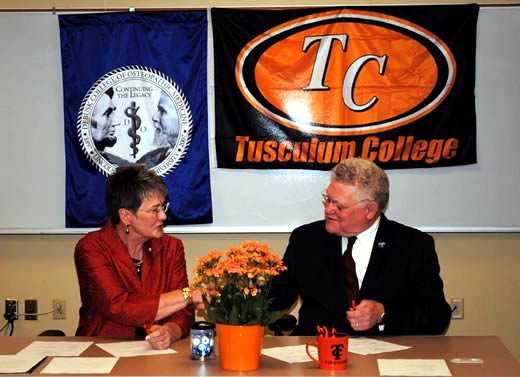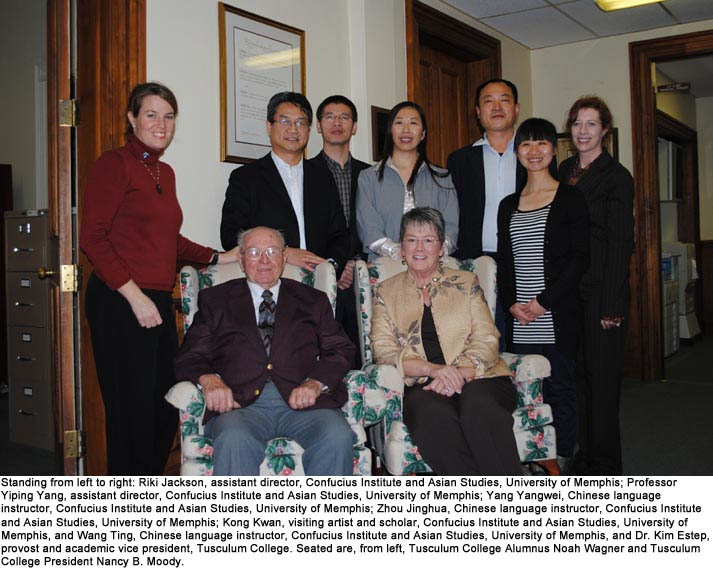
Dr. Nancy B. Moody, president of Tusculum College (left), and Dr. Ray Stowers, vice president and dean of the Lincoln Memorial University-DeBusk College of Osteopathic Medicine, signed an affiliation agreement to provide early acceptance for qualifying Tusculum College students into the LMU-DCOM program.
Representatives of Tusculum College and Lincoln Memorial University-DeBusk College of Osteopathic Medicine signed an affiliation agreement on Wednesday, April 20, opening the door for a seamless transfer for students majoring in selected academic programs at Tusculum College.
Tusculum College President Dr. Nancy B. Moody and Dr. Ray Stowers, vice president and dean Lincoln Memorial University-DeBusk College of Osteopathic Medicine, signed the articulation agreement at the Tusculum College Knoxville Regional Center on Wednesday afternoon. The agreement becomes effective immediately for students enrolled at Tusculum College.
“We are very pleased to announce this new partnership and affiliation agreement that offers Tusculum College students a seamless transition into the osteopathic medical college at LMU,” said Moody. “This affiliation agreement provides a pathway to launch our best and brightest students into a career as an osteopathic physician.”
The two colleges have been working out the details of the affiliation agreement for several months and have come up with a program that allows for Tusculum College undergraduate students who meet the guidelines to be given provisional acceptance into the LMU-DCOM.
“We look forward to working with Tusculum College students as part of this program,” Stowers said. “Through this program the two institutions are helping to address the critical health care needs of the region,” said Stowers.
“The Early Acceptance Program is designed to facilitate the admission of Tusculum College students into the Doctor of Osteopathic Medicine program,” said Dr. Kim Estep, provost and academic vice president at Tusculum College.
Once recommended by Tusculum College, representatives of the program will interview the student in their junior year at Tusculum. Those who have a successful interview will be offered provisional acceptance into the program.
“We are very excited about the additional options this agreement will provide for current and future Tusculum College students,” said Moody. “We will continue to strive to provide them opportunities to excel not only while they are on our campus, but also as they continue their education in professional schools such as the DeBusk College of Osteopathic Medicine.”



